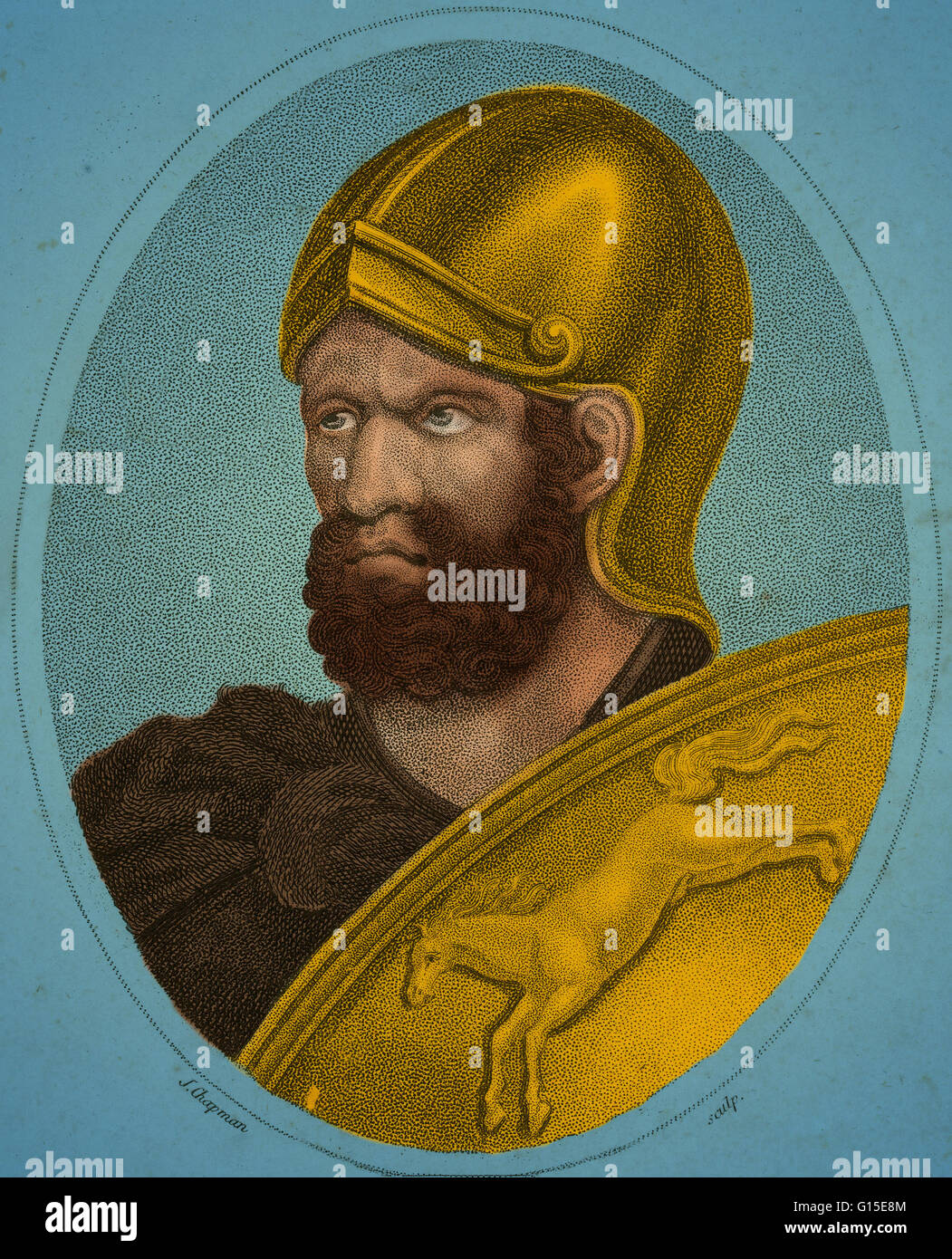Hannibal, son of Hamilcar Barca (247-183/182 BC) was a Carthaginian military commander and tactician generally considered one of the greatest military commanders in history. One of his most famous achievements was at the outbreak of the Second Punic War,

Image details
Contributor:
Science History Images / Alamy Stock PhotoImage ID:
G15E8MFile size:
22 MB (2.6 MB Compressed download)Releases:
Model - no | Property - noDo I need a release?Dimensions:
2492 x 3080 px | 21.1 x 26.1 cm | 8.3 x 10.3 inches | 300dpiPhotographer:
Photo ResearchersMore information:
This image could have imperfections as it’s either historical or reportage.
Hannibal, son of Hamilcar Barca (247-183/182 BC) was a Carthaginian military commander and tactician generally considered one of the greatest military commanders in history. One of his most famous achievements was at the outbreak of the Second Punic War, when he marched an army, which included war elephants, from Iberia over the Pyrenees and the Alps into northern Italy. In his first few years in Italy, he won dramatic victories (Trebia, Trasimene, and Cannae) and won over many allies of Rome. Hannibal occupied much of Italy for 15 years, but a Roman counter-invasion of North Africa forced him to return to Carthage, where he was was defeated at the Battle of Zama by Publius Cornelius Scipio Africanus. The last major battle of the Second Punic War resulted in a loss of respect for Hannibal by his fellow Carthaginians. The conditions of defeat were such that Carthage could no longer battle for Mediterranean supremacy. Seven years after the victory of Zama, the Romans, alarmed by Carthage's renewed prosperity, demanded Hannibal's surrender. Hannibal thereupon went into voluntary exile. Determined not to fall into enemy hands he took poison, which, it was said, he had long carried about with him in a ring.